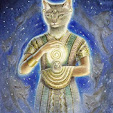Benjamin Britten; PETER GRIMES
English National Opera, 1 February 2014
PETER GRIMES Stuart Skelton
ELLEN ORFORD Elza van den Heever
CAPTAIN BALSTRODE Iain Paterson
AUNTIE Rebecca de Pont Davies
FIRST NIECE Rhian Lois
SECOND NIECE Mary Bevan
BOB BOLES, Methodist Michael Colvin
SWALLOW, Lawyer Matthew Best
MRS SEDLEY Felicity Palmer
Rev HORACE ADAMS Timothy Robinson
NED KEENE, Apothecary Leigh Melrose
HOBSON, carter Matthew Trevino
JOHN, the apprentice TImothy Kirrage
DOCTOR CRABBE Ben Craze
Chorus of townspeople and fishermen
CONDUCTOR Edward Gardner
DIRECTOR David Alden
A stunning performance of great intensity, with orchestra, conductor and singers working so seamlessly together, the chorus as vital a character as the soloists. Indeed, Britten saw it as the individual against the collective - which is not quite how George Crabbe saw it; Britten does make Grimes into a more ambiguous character, rather than an out-and-out villain. (There is thus more room for character development, and at one some point - which I shall come to - Grimes appears as much victim as villain).
But let me start at the beginning, with a few words about the staging, which is quite minimalist; an almost bare stage for the investigation into the death of Grimes' apprentice, with the Chorus - suspicious, hostile villagers - at the back of the stage as spectators. Grimes (Stuart Skelton) climbs on the table to make his point to the hostile witnesses and spectators.
The second scene also is set indoors, the set later becomes the Boar -
complete with an Auntie (Rebecca du Pont Davies) straight out of Berlin cabaret. Nothing to do with PETER GRIMES, but a wonderful characterisation!! (The characterisation seems to be based on a specific painting by Otto Dix)
Photo by Roy Tan, West End Theatre
I like the little details of staging and characterisation, such as the fact that Hobson the carter is drunk under the table, but not so drunk that he can't get up and say 'Cart's full, Sir', when he realises what the job is, and the characterisation of Ned Keene as a 'bit of a wide boy'. The scene shows Grimes at odds with the village even before his new apprentice arrives, and he does nothing to set things right, rushing off with the boy at once, provoking the cry of contempt from the villagers - 'Home!! You call that home?'
Stuart Skelton is unsurpassable as Grimes; the role takes the tenor through a whole range of vocal colouring, from sullenness and anger in the first Act, to beauty of tone in the sad, lyrical 'in dreams I've built myself some kindlier home'...because that's all it is, dreams. This is a side of Grimes' nature that the villagers never see, and he is never able to let it flourish....
In dreams I've built myself some kindlier home
Warm in my heart and in a golden calm
Where there’ll be no more fear and no more storm.
And she will soon forget her schoolhouse ways
Forget the labour of those weary days
Wrapped round in kindness like September haze.
The learned at their books have no more store
Of wisdom than we’d close behind our door.
Compared with us the rich man would be poor.
I’ve seen in stars the life that we might share:
Fruit in the garden, children by the shore,
A fair white doorstep, and a woman’s care.
Fine sentiments, and beautifully expressed, although Grimes has been seen not only terrorising the apprentice but striking Ellen.....but Britten gives the tenor and the orchestra such beautiful music to express this impossible dream.
He is well matched by the mellow, warm tones of Elza van den Heever as Ellen. Ellen too is a complex character, and Elza van den Heever gave a subtle, nuanced performance. The quartet with Auntie and the nieces was very moving.
Praise also for Iain Paterson as the old sea-dog Balstrode, who stands aside from the rest of the villagers and is not entirely unsympathetic to Grimes.
All the cast displayed a very high level of musicianship and acting. Felicity Palmer deserves special mention for her presentation of the awful Mrs. Sedley. (Her malice is such that even Ned Keene, (Leigh Melrose) no friend of Grimes, feel compelled to find a reasonable explanation for his absence and the disappearance of the boy.
(Picture by Tristram Kenton)
And now I come to the Chorus, the group of bigoted villagers with whom Grimes is at odds. The level of hostility is palpable, right from the beginning, building up to the scene in which they repeatedly shout his name - they become a howling mob, a many-headed hydra - er - waving Union Jacks? Another directorial innovation, which does make them more menacing (think BNP, for instance). This is the point at which Grimes seems to be as much victim as villain - if you look at the actual words they sing, it seems as if it is not really about the apprentice at all, it goes deeper than that.
Chorus
Who holds himself apart
Lets his pride rise.
Him who despises us
We’ll destroy.
And cruelty becomes
His enterprise.
Him who despises us
We’ll destroy.
I refer again to the superb musicianship of the entire ensemble, the Storm Sea Interlude especially was very intense and frightening.
I love this opera, and I loved this performance.







.jpg)







